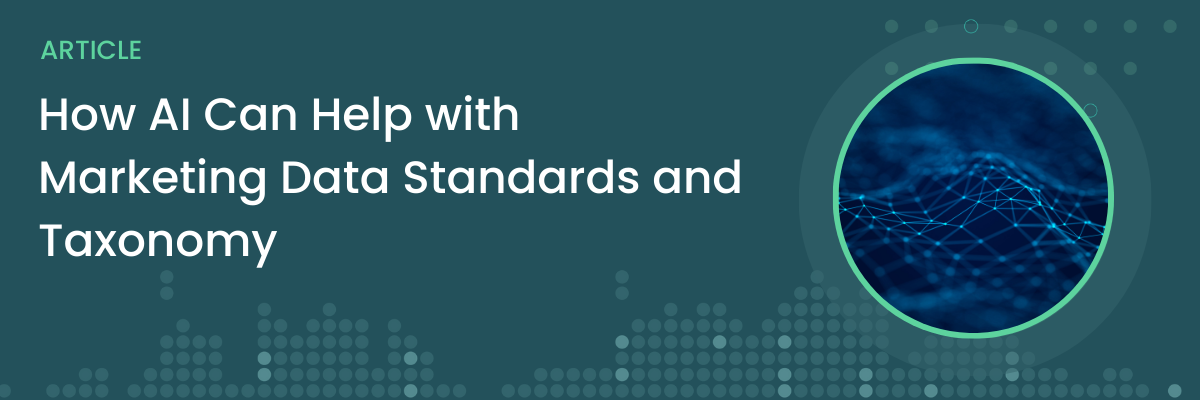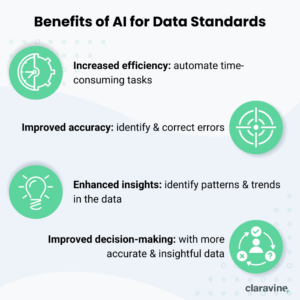How AI Can Help with Marketing Data Standards and Taxonomy

In today’s data-driven world, marketing teams are constantly looking for ways to improve their data quality and accuracy. One of the best ways to begin is by investing in excellent data standards and taxonomy. As a refresher:
- Data standards are a set of rules that define how data is collected, stored, and used.
- Taxonomy is a system of organizing and classifying data.
To many marketers, implementing Data Standards and a unified Taxonomy across global teams can be a scary proposition – but what’s scarier is the amount of money marketing organizations are wasting away due to data quality issues. One marketing executive recently told me that as much as 65% of their data was inaccurate due to poor taxonomy implementation and a lack of marketing data standards across their teams!
With that kind of performance on the line, making sure that your data standards are in good shape should be a top priority. That’s where AI can help – optimizing your data processes to become more efficient and delivering better insights.
With the proliferation of AI, there has never been a better time to drive this change across your organization.
How to use AI to improve your Data
AI is revolutionizing the way companies do business and scale their operations. It can be a powerful tool for helping marketing teams implement data standards and taxonomy
Here are some specific ways that AI can help with marketing data standards and taxonomy:
- Classify content and creative: We are creating more content, faster, and in different formats, than ever before. Automatically classifying content (videos, images, copy) and ad creative allows you to organize it into a consistent data taxonomy and gather the insights you need.
- Automate data cleaning: AI can be used to automate tasks such as identifying and removing duplicate data, correcting errors, and filling in missing data. This can help to improve the quality of marketing data and make it more useful for analysis.
- Validate data: AI can be used to validate data against a set of rules. This can help to ensure that data is accurate and consistent.
- Enrich data: AI can be used to enrich data with additional information, such as demographics, psychographics, and purchase history. This can help marketers to better understand their customers and target their marketing campaigns more effectively.
- Identify patterns and trends: AI can be used to identify patterns and trends in data. This can help marketers to make better decisions about where to allocate their marketing resources.
There are many reasons why marketers use AI as part of their data strategy to help teams implement data standards and taxonomy. By automating tasks, validating data, enriching data, and identifying patterns and trends, AI can help marketing teams improve the quality of their data and make better decisions.
The benefits of AI for data standards
Here are some additional benefits of using AI for marketing data standards and taxonomy:
- Increased efficiency: AI can help marketing teams be more efficient by automating tasks that would otherwise be time-consuming and labor-intensive.
- Improved accuracy: AI can help marketing teams improve the accuracy of their data by identifying and correcting errors.
- Enhanced insights: AI can help marketing teams gain deeper insights into their customers by identifying patterns and trends in their data.
- Improved decision-making: AI can help marketing teams make better decisions by providing them with more accurate and insightful data.

If you are looking for ways to improve your marketing data standards and taxonomy, AI is a powerful tool that can help you achieve your goals.
Want to learn more about how Claravine is utilizing AI to enrich video, image, and text content? Watch The Power of AI for Content Data Standards webinar here.



